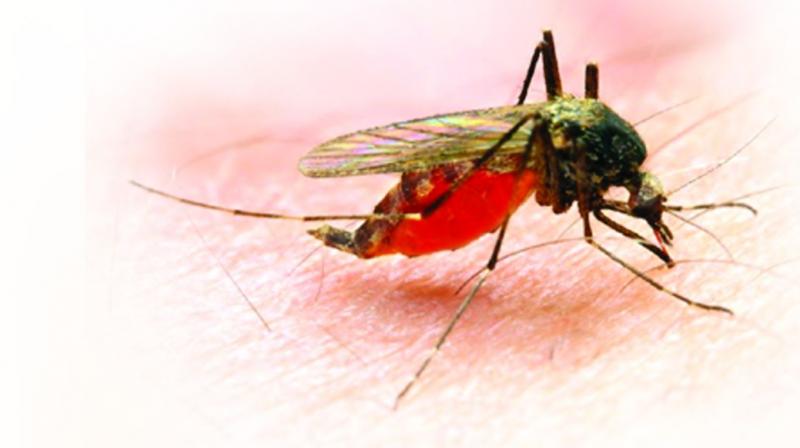India sets 2030 as target to eradicate malaria
2 more vaccines undergoing trial in the country.

Hyderabad: The Malaria Elimination Research Alliance, a branch of the Indian Council of Medical Research, has been set up to prioritise, plan and scale up relevant research in malaria and bring down the number of cases with the target of eliminating this vector born disease by 2030 in India.
Ongoing biomedical research is going to play a major role with the introduction of the first malaria vaccine in three countries of Africa, setting a new benchmark to fight the disease.
The first malaria vaccine, RTS,S/ASOI, will be administered to 3.5 lakh children in Malawi, Ghana and Kenya. It protects against the deadly Plasmodium falciparum parasite.
The research for RTS,S vaccine was going on for 20 years and in 2001 the development of the vaccine was given to GSK along with partnership with PATH. The booster dose of the strain which was used in the controlled trials in 2014-15 has shown ‘substantial level of efficacy’ according to a review carried out from multiple studies in Africa and published in the Lancet in 2015.
Two more vaccines are presently under research for P. falciparum. JAIVAC-1 is currently in a phase-1 trial in healthy males by Lotus Laboratories in Bengaluru. The project has received funding from the Department of Biotechnology and the European Vaccine Initiative. This is a part of the multi- vaccine development programme.
The third vaccine is PvDBPII which is found to be more promising in p. vivax cases and is in phase 1 studies for animals. The technology transfer of the vaccine will be carried out based on the reports of these studies.
Dr Sai Kumar Katam, national president of the Doctor of Pharmacy Association explained, "Vaccines are found to create immunity in the population. When so many children receive the vaccine there will be a reduction in incidence.
The three countries in Africa are going to show the way forward in how vaccine will help to tackle malaria. Vaccines have proved useful in tackling diseases like polio, chicken pox, measles and many others, and hence it is the way forward."
Dr K.K. Aggarwal, president elect Confederation of Medical Associations in Asia and Oceania (CMAAO) says an investigational drug DM1157 is a modified form of the anti-malarial drug chloroquine which is found to interfere with the metabolism of the parasite. “This inhibits the parasite’s ability to expel the drug and drug resistance is avoided. A phase 1 trial to evaluate the safety of the drug began in September 2018. These new inputs are helping to deal with the resistance to drugs that has been noted.”
But the major challenge before researchers is the sudden spike in the incidence of malaria in 2016-17. In 2017, there were an estimated 219 million cases of malaria worldwide and approximately 4,35,000 deaths due to the disease, according to the WHO.
The risk was found to be 59 per 1,000 people in the high-risk areas and regions which is considered an all-time high for the oldest disease in the world.

